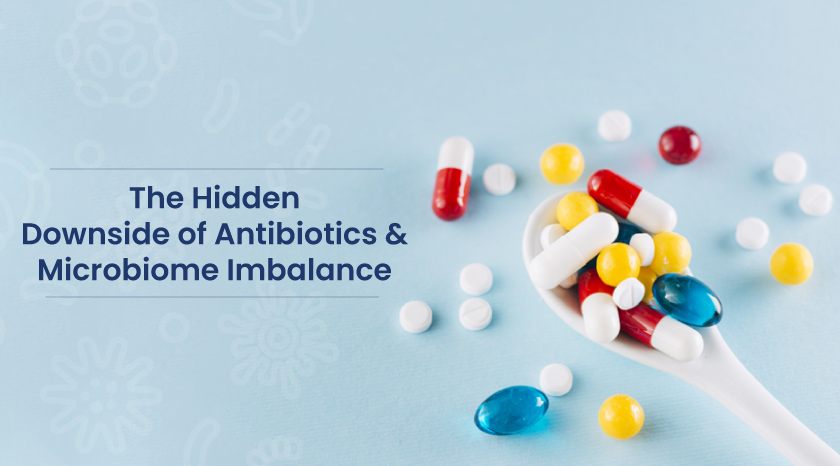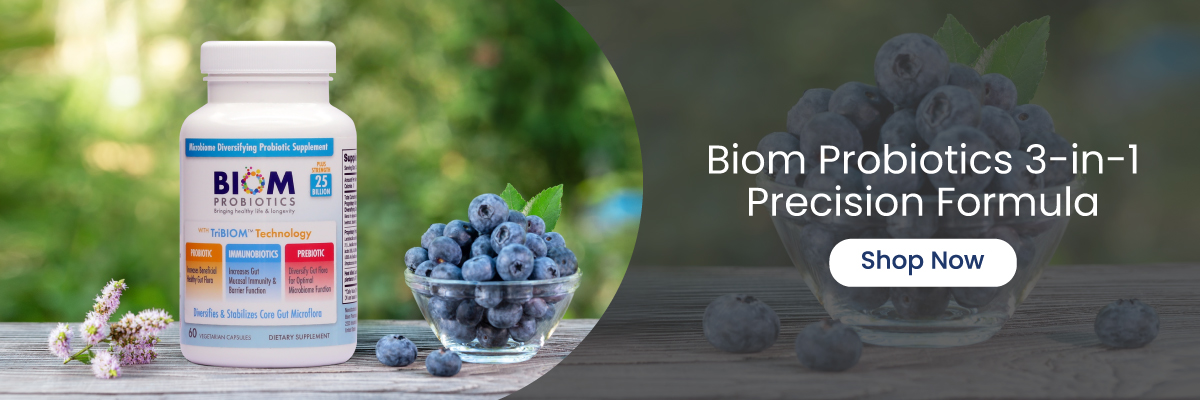Antibiotics are a cornerstone of modern medicine, offering life-saving treatments for bacterial infections. However, their use can come with significant downsides, particularly for your gut health. Here’s what you need to know about how antibiotics affect your microbiome and how to mitigate these effects.
Understanding Antibiotics
Purpose and Function:
- Antibiotics are designed to kill or inhibit the growth of bacteria, making them essential for treating infections like pneumonia, urinary tract infections, and sepsis.
Non-Selective Action:
- Unfortunately, antibiotics do not differentiate between harmful and beneficial bacteria, leading to unintended consequences for the gut microbiome.
Impact on the Microbiome
- Reduction in Beneficial Bacteria:
- Antibiotics can drastically reduce the population of beneficial bacteria in the gut, leading to dysbiosis, an imbalance that can cause various health issues.
- Immediate Side Effects:
- Common side effects such as diarrhea, nausea, and stomach cramps occur because antibiotics disrupt the natural balance of gut flora, impacting digestion and nutrient absorption.
- Long-Term Health Concerns:
- Prolonged or repeated use of antibiotics can lead to lasting disruptions in the microbiome. Dysbiosis is linked to chronic conditions like irritable bowel syndrome (IBS), inflammatory bowel disease (IBD), obesity, and mental health disorders such as anxiety and depression.
- Increased Infection Risk:
- The depletion of beneficial bacteria can weaken the gut’s defenses, making it easier for harmful bacteria like Clostridium difficile (C. diff) to cause severe and difficult-to-treat infections.
Strategies to Protect Your Gut
Probiotic Supplements:
- Probiotics are live beneficial bacteria that help restore the gut microbiome’s balance. Taking probiotics during and after antibiotic treatment can reduce the risk of antibiotic-associated diarrhea and support a healthy microbial community.
Prebiotics and Fiber-Rich Diet:
- Prebiotics are non-digestible fibers that feed beneficial bacteria. A diet rich in prebiotics and fiber supports the growth of healthy gut bacteria, aiding microbiome recovery.
Responsible Antibiotic Use:
- Only use antibiotics when prescribed by a healthcare professional for bacterial infections. Avoid using them for viral infections like colds and flu, as antibiotics are ineffective against viruses and contribute to antibiotic resistance.
Hydration and Balanced Nutrition:
- Staying hydrated and maintaining a balanced diet rich in fruits, vegetables, whole grains, and lean proteins supports overall health and helps the gut recover after antibiotic use.
Post-Antibiotic Care:
- Continue taking probiotics for several weeks after completing an antibiotic course to ensure the microbiome is fully restored. Regularly consuming fermented foods like yogurt, kefir, sauerkraut, and kimchi can also support gut health.
For a reliable and effective probiotic supplement to support your gut health during and after antibiotic use, consider BIOM Probiotics 3-in-1, available at BIOM Probiotics. This advanced formula combines probiotics, prebiotics, and postbiotics to provide comprehensive support for your gut health, ensuring optimal wellness even during antibiotic treatments.





